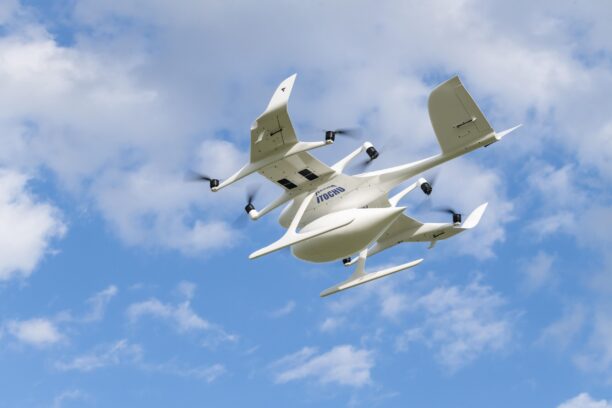Partnership Enhances Flight Range and Design for Remote Healthcare Acces
Wingcopter Optimizes Drone Design for Long-Range Medical Delivery
Wingcopter, a developer of delivery drones for critical healthcare supplies, has partnered with Ansys to improve the design and performance of its aircraft. With support from Ansys and its channel partner CADFEM Germany GmbH, Wingcopter is using advanced simulation tools to make faster, more accurate design decisions—helping to deliver medical items such as vaccines and lab samples to remote regions.
Through simulation, Wingcopter has refined the payload capabilities of its vertical takeoff and landing (VTOL) drones. These enhancements could increase flight range by more than 10%. The ability to fly farther while maintaining load capacity helps ensure that medical equipment and supplies reach more people, more quickly.
“Simulation helps our teams analyze and optimize our drone design, as well as evaluate individual problems on a level of detail that is often not possible or very difficult to test,” said George Robson, team lead for mechanical engineering and aerodynamics at Wingcopter.
How Simulation Accelerates Development
Designing a VTOL drone that can smoothly shift from hovering to forward flight involves solving many engineering challenges. The drones use a combination of eight motors, including four tiltrotors, and a backup battery system to ensure safety. To meet certification requirements, Wingcopter used several of Ansys’ multiphysics tools:
-
Ansys Discovery™ to simplify 3D simulation setup
-
Ansys LS-DYNA® to test how the landing gear performs during crashes
-
Ansys Fluent™ to simulate aerodynamics and rotor behavior during transitions
-
Ansys medini® analyze™ to complete safety assessments for international regulators
The company compares its simulation results with field tests. This creates a feedback loop that improves accuracy and speeds up the design process. The use of virtual prototyping allows for faster improvements without waiting for multiple physical builds.
A Data-Driven Future for Drone Delivery
As drone use expands into more advanced applications, including infrastructure inspections and long-range LiDAR mapping, the ability to optimize performance across weather conditions and altitudes becomes more important.
“By leveraging Ansys’ sophisticated modeling, we can refine every aspect of drone performance, ensuring unparalleled efficiency, reliability, and innovation in aerial solutions,” said Robson.
Walt Hearn, senior vice president of worldwide sales and customer excellence at Ansys, emphasized the value of simulation in fast-changing industries. “Ansys simulation empowers customers to move beyond linear product development and embrace comprehensive design loops for more innovative and efficient solutions,” said Hearn.
Ansys and Wingcopter will be showcasing their joint efforts at the Paris Air Show from June 16–19 at Booth AB168 in Hall 4.
Read more:


Miriam McNabb is the Editor-in-Chief of DRONELIFE and CEO of JobForDrones, a professional drone services marketplace, and a fascinated observer of the emerging drone industry and the regulatory environment for drones. Miriam has penned over 3,000 articles focused on the commercial drone space and is an international speaker and recognized figure in the industry. Miriam has a degree from the University of Chicago and over 20 years of experience in high tech sales and marketing for new technologies.
For drone industry consulting or writing, Email Miriam.
TWITTER:@spaldingbarker
Subscribe to DroneLife here.


